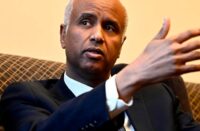The Alternative for Germany (AfD) has emerged as a leading far-right political entity poised for a significant performance in the upcoming national elections. This marks the first time a party of its kind has shown such strength since World War II. The party has made historic strides by nominating its first-ever candidate for the country’s leadership role.
Despite the party’s growing influence, other political factions have expressed their unwillingness to collaborate with the AfD, primarily due to its anti-immigration stance. However, its co-leader, Alice Weidel, is unlikely to secure the top office. Regardless, the party’s impact on Germany’s immigration debate is undeniable and has forced other politicians to pay heed.
The AfD’s influence extends beyond Germany’s borders, with high-profile endorsements from Elon Musk and attention from US Vice President JD Vance and Hungarian Prime Minister Viktor Orbán.
The party, established in 2013, initially centered its opposition on the bailouts provided to struggling eurozone nations, a stance that was in direct conflict with then-Chancellor Angela Merkel’s policies. Over time, the AfD has evolved, becoming more radical and frequently changing leadership. The party gained significant momentum following Merkel’s decision to accept a large influx of migrants in 2015. By 2017, the AfD had secured 12.6% of the national vote, marking its entry into the German parliament.
Despite a slight dip in support during the 2021 parliamentary elections, the AfD has managed to regain momentum. The party’s bold rhetoric and policy proposals have garnered it significant support, particularly in the eastern states.
The AfD’s key issues include curbing migration, countering Germany’s shift away from fossil fuels, opposing restrictions during the COVID-19 pandemic, and supporting Ukraine post-Russia’s invasion. The party also advocates for the lifting of sanctions against Russia, the reintroduction of a national currency, and a reconfiguration of the European Union.
Despite its growing popularity, the AfD has been subjected to scrutiny by Germany’s domestic intelligence agency for suspected right-wing extremism. However, the party vehemently denies any association with Nazi ideologies.
The AfD’s rise parallels the growth of far-right parties across Europe, such as Austria’s Freedom Party and France’s National Rally. The party’s foreign affiliations and endorsements could potentially boost its profile and sway in the upcoming elections.





